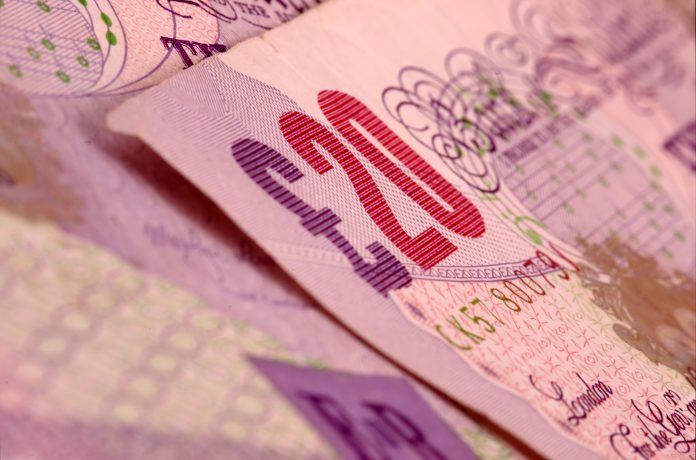South Gloucestershire residents, council tax and business rate payers are being invited to have their say on the council’s budget and council tax for 2021/22.
The council expects to spend in the region of £689 million in the next financial year on areas including schools, refuse collection, street cleaning, planning, social care and road maintenance. This budget is based on an assumed central Government contribution of £77.5m towards general services and £244.8m specifically for schools.
At this stage in the council’s budget setting process, the level of funding to be made available through the Comprehensive Spending Review is not yet known and major changes planned to the Local Government Finance System in 2021/22 have been delayed due to the pandemic. As such, the council has made sensible assumptions based on available the information available now, whilst taking into account the current impact of Covid-19 being felt on council tax and business rates.
While this is an outline budget at this stage, based on a series of assumptions about available funding, demand for services and other factors, each year the public are encouraged to comment on the council’s priorities and council tax levels for the coming year.
As we continue our drive to keep services sustainable for the future, and to provide value for money, the council is proposing to repeat last year’s council tax increase of 1.99 per cent to help cover increased costs in providing services, coupled with an adult social care precept of 2 per cent should government allow this flexibility to continue in 2021/22. This will help us meet the continued growth in demand for services, particularly those that support the most vulnerable in our community.
It is anticipated that these changes will mean an increase of approximately £61.58 per year in overall council tax bills (equivalent to £5.13 per month) for a Band D household. Despite increases in previous years, our medium term financial planning indicates we will need to make more savings over the next four years to keep pace with increasing cost pressures. Until we have certainty about potential further funding increases in the future, we have to treat those announced this year as one-off, if we are to responsibly balance our books.
By the end of 2021/22, we will have made cumulative savings of over £100m in annual spending through a range of efficiency measures. Wherever possible, this work has prioritised protecting frontline services from spending reductions, while delivering better value for money to residents. Based on this approach, we are continuing to implement a Transformation and Savings Programme to help us meet the budget challenges ahead. It will allow time for meaningful consultation with staff as well as with the public, depending on the saving we need to make and where we are proposing to change the way we deliver services, as well as for sustainable implementation, so that we can set budgets with confidence and not have to make short term, in-year cuts.
Even with the assumption that the full savings plan is achieved, there is still a predicted budget gap amounting to £22.5m by 2022/23. This means that work is ongoing to identify further potential savings in order to balance the books and we continue to make the case to Government for additional funding for areas of our work where demand and costs of delivering those services continues to rise significantly.
In setting out the budget for 2021/22 and in planning for future years, the council makes projections about future events, based on a best assessment of the position at the time.
Most notably we will need to review the council’s overall financial position later this year in light of:
• The Comprehensive Spending Review (this sets out the amount of funding to government departments for the next three years)
• The provisional Local Government Finance Settlement (this sets out the level of funding the Government gives to each local authority and what they specify certain parts of that money can be spent on)
• Developments as the Government progresses with leaving the EU
• The general UK economy
• The budget-setting process of the West of England Combined Authority
• Changes to the Local Government Finance System and the Fair Funding Review.
Further information about these factors can be found in the Cabinet papers considered on 5 October, which are available on our website: https://council.southglos.gov.uk/documents/s121769/Draft%20Revenue%20Budget%20and%20Capital%20Programme%20Report%20202122-202425.pdf
South Gloucestershire Council Cabinet Member for Resources, Councillor Ben Burton, said: “We are totally committed to delivering the services that our communities need and rely on. Our top priorities are to deliver the best possible educational outcomes for all of our young people; to maintaining and improving the places where we live; and to achieving the very best value for money the public money we spend.
“This year of course we have been delivering millions in support to residents and to businesses who are impacted by the Covid-19 situation and as that continues, it will have an ongoing affect on our budget. This draft budget sets out how we would like South Gloucestershire to respond to and recover from Covid-19 and to continue to be such a wonderful place to live, work and visit.
“In the face of continually increasing demand for the services needed by the most vulnerable in our society, the young and the old, we need to balance delivering those services and ensuring we get value for every pound we spend, with balancing the books. And that is why each year we ask residents to let us know about their views and priorities as we plan for the future.”
People can share their views in the following ways:
• By email: consultation@southglos.gov.uk
• By completing a consultation survey (available to complete online or download from the council website: www.southglos.gov.uk/budget
• By writing to: Freepost RTXL-YJXJ-BXEX, South Gloucestershire Council, Corporate Research & Consultation Team, Council offices, Badminton Road, Yate, Bristol, BS37 5AF
• By telephoning 01454 868154.
The consultation closes on 3 January 2021 and the feedback received will be considered by full Council on 10 February 2021.









